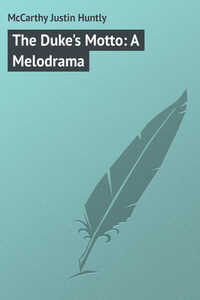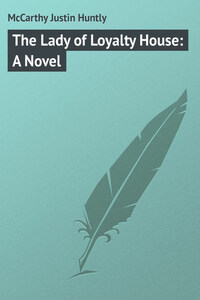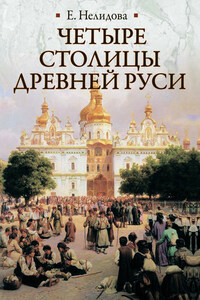A VICTORIEN SARDOU
Maître,
Voilà un mélodrame que j’ai fait, le dernier de plusieurs mélodrames anglais qui ont Lagardère pour héros. Des mots remplacent l’action, des mots remplacent le décor, les costumes, et les accessoires; mais enfin ce pastiche n’est qu’une pièce et non un roman. Je l’ai fait pour Lewis Waller, acteur romantique s’il en fut, et grandement doué des qualités qui appartiennent par tradition à Lagardère. J’ai su, il y a longtemps, grâce à M. Jules Claretie, que vous étiez le vrai createur de ce paladin, Lagardère, pair de d’Artagnan, pair de Cyrano, pair presque de Roland et d’Olivier. Et si je ne l’avais pas su, j’aurais pu l’apprendre dernièrement en lisant ce livre aussi plein de charme que d’érudition, "Les Anciens Théâtres de Paris" de M. Georges Cain. Mais je crois que cette vérité est connue de peu de monde dans les pays où se parle la langue anglaise, que quand on loue "Le Bossu" de Féval on doit aussi louer "Le Bossu" de Sardou.
XIV-I. – MCMVIII.
It was very warm in the inn room, but it was so much warmer outside, in the waning flames of the late September evening, that the dark room seemed veritably cool to those who escaped into its shelter from the fading sunlight outside. A window was open to let in what little air was stirring, and from that window a spectator with a good head might look down a sheer drop of more than thirty feet into the moat of the Castle of Caylus. The Inn of the Seven Devils was perched on the lip of one rock, and Caylus Castle on the lip of another. Between the two lay the gorge, which had been partially utilized to form the moat of the castle, and which continued its way towards the Spanish mountains. Beyond the castle a bridge spanned the ravine, carrying on the road towards the frontier. The moat itself was dry now, for war and Caylus had long been disassociated, and France was, for the moment, at peace with her neighbor, if at peace with few other powers. A young thirteenth Louis, a son of the great fourth Henri, now sat upon the throne of France, and seemingly believed himself to be the ruler of his kingdom, though a newly made Cardinal de Richelieu held a different opinion, and acted according to his conviction with great pertinacity and skill.
Inside the Inn of the Seven Devils, on this heavy day of early autumn, seven men were sitting. It was an odd chance, and the men had joked about it heavily – there was one man for each devil of the Inn’s name. Six of these men were grouped about a table furnished with flagons and beakers, and were doing their best to alleviate the external heat by copious draughts of the rough but not unkindly native wine which Martine, the plain-faced maid of the Inn, dispensed generously enough from a ruddy earthenware pitcher. A stranger entering the room would, at the first glance, have taken the six men seated around the table for soldiers, for all were stalwart fellows, with broad bodies and long limbs, bronzed faces and swaggering carriage, and behind them where they sat six great rapiers dangled from nails in the wall, rapiers which the revellers had removed from their sides for their greater ease and comfort. But if the suppositious stranger were led to study the men a little more closely, he would be tempted to correct his first impression. The swaggering carriage of the men lacked something of the stiffness inevitably to be associated with military training in the days when the levies of the Sun-King were held, or at least held themselves to be, the finest troops in Europe, a cheerful opinion which no amount of military misfortune could dissipate.
Each of the drinkers of the inn had his own individuality of swagger, his truculent independence of mien, which suggested a man by no means habitually used either to receive commands or to render unquestioning obedience. Each of the men resembled his fellows in a certain flamboyant air of ferocity, but no one of them resembled the others by wearing that air of harmonious training with other men which links together a company of seasoned soldiers. With their long cloaks and their large hats and their high boots, with their somewhat shabby garments stained with age and sweat and wine, in many places patched and in many places tattered, with their tangled locks and ragged mustachios, the revellers had on closer study more the appearance of brigands, or at least of guerillas, than of regular troops. As a matter of fact, they were neither soldiers nor brigands, though their way of life endowed them with some of the virtues of the soldier and most of the vices of the brigand.
There was not a man in that room who lacked courage of the fiercest kind; there was but one man in the room with intelligence enough to appreciate the possibility of an existence uncoupled with the possession of courage of the fiercest kind. There was not a man in the room who had the slightest fear of death, save in so far as death meant the cessation of those privileges of eating grossly, drinking grossly, and loving grossly, which every man of the jack-rascals prized not a little. There was not a man in the room that was not prepared to serve the person, whoever he might be, who had bought his sword to strike and his body to be stricken, so long as the buyer and the bought had agreed upon the price, and so long as the man who carried the sword felt confident that the man who dandled the purse meant to meet his bargain.










